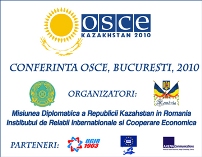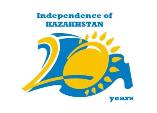 Deciphering Obama
Deciphering Obama
Today, after three weeks from the presidential take over ceremony in United States every body is trying to decipher what will be the next policy of Washington under the President elect Barack Obama.
Even at a glimpse the international agenda left behind by President Bush is a difficult one: war in Iraq and Afghanistan, crisis in Pakistan, tension relation with Russia, frictions with Europe, problems in Africa , every one will see that the next president is going to have his hands full with this agenda.
But what are Baracks Obama one interests in this international agenda. What is making the man tick on international issues?
We have a lot of information on what the new presidents intentions are by his foreign policy interviews, articles, and speeches and already established interest points on his agenda.
A new image for U.S.
The new president is highly concerned with the drop of America’s popularity all around the world. This is a major issue the Obama wants to tackle by dismantling Guantanamo Bay Prison, by releasing the inmates that have being proven innocent and transferring to civil courts in US the cases already build by US prosecution , instead on judging the offenders on military courts as Bush administration wanted to do. Also the new administration will ban the Executive Orders of President Bush that allowed US troops to attack any country and any position around the world suspected of helping, financing, training or supporting terrorist activities.
Also, Obama administration announced very clearly that will renounced at Bush doctrine of preempting strike and going alone doctrine that give to US the right to act without his allies as in Iraq offensive case.
The preemptive strike will not be completely abolished; by will require under the new administration the approval of NATO members and key allies before being applied.
U.S. relation with Europe.
Relation with Europe, badly damage after the US invasion of Iraq is also high on President elect Obama`s agenda. US will be once more a strong supporter of the European Union construction and enlargement. Barack Obama is ready to restore to UE the role of consultant and key decision maker in Europe and Africa region. In Berlin speech Obama offered to E.U. a partnership in expansion of democratic values and free market economy in Africa, Middle East and Eastern Europe. While G. Bush favored the military expansion in Eastern Europe ( by promoting Baltic States in NATO, supporting Ukraine and Georgia bid to NATO and building the missile Shield in Poland ) the new president is preferring using E.U. membership option and E.U. cooperation plans to promote softer relation in Eastern Europe. Also on Europe chapter president elect Barack Obama is favoring a detente in relation with Russia: suspending military aid to Georgia, stopping NATO presence on the Black Sea , redrawing support for Ukraine and Georgia bid to join NATO and renouncing at the plans to build the Missile Shield in Eastern Europe every thing announced a new era of Russia-US relationship .
Obama and the U.S. military complex.
Is Barack Obama a pacifist? Not a bit, he is a realist on the line of Woodrow Wilson theory of a concert of free nation that will prevail against any threats (This theory marked the US involvement in First World War and in building the League of Nations- the predecessor of today United Nation).
Obama is determined to increase the military budget (already doubled in size from the Clinton era) by 25% in his first term in office. He already advocated this increase by saying that US are involved in two major military actions and needs to increase and modernize his military apparatus. The retreat from Iraq will only include military combat troops, technicians, private contractors, private army (as Black water troops and US air strike capability will be left in place to support the Iraqi government). On Iran agenda all thou that Barack Obama is not an advocate of ground invasion (as J. McCain was) his stands on Iran will still be a harsh one. A nuclear Iran is unacceptable, he pointed out. As a paradox: the redrew from Iraq will offer Obama the free hand to deal with Iran, even by air strikes without fearing on repercussions to US troops on the ground. So a coalition against Iran is still one the president agenda and with new relations with Russia and E.U he could be even better position then G. Bush to make strong pressure on Teheran. Also the decision to redraw from Iraq will be a good one for Afghanistan where lack of troops and financial aid make the country a safe haven for Al Qaeda and Taliban’s.
Obama and China.
If the new US president is keen on cooperating with Europe, ease tensions with Russia; redraw from Iraq then why such a military build up is still necessary?
Obama`s see the danger for the US coming from China. Every line of foreign policy speech is a reflection of his willingness for a stronger attitude towards China. Only in the last 6 month he declared that: US market is threatened by the import from China, by the trade deficit with China, by piracy on electronic products from China. In his best seller: The Audacity of hope, Barack Obama states clearly that: “In the XXI century the major challenge from military and economic point of view to US is from China…. and for this we have to be prepared” (p.313).
In recent weeks after the election also declared that is inadmissible that U.S. currency is tied to China and that US deficit is supported by Chinese loans.
This is not mean that Obama is determined to have a stand off with China but is determine not to allow China to challenge US supremacy in Asia-Pacific region.
New down.
At the new down of Barack Obama administration the president seems decided to change the world: a new military doctrine, a shift in focus to Asia-Pacific region, controls over Middle East, better relations with Russia an E.U. and a new image for United States in the world. Bush and Obama could not be more different on foreign policy aspects. What will mean Obama legacy to the world? Let’s wait and see. Change has definitely come to White House.
Professor Anton Caragea PhD, M.A., FINS.




 Posted by antoncaragea
Posted by antoncaragea  ROMANIA IN 2009- YEAR OF THE CRISIS.
ROMANIA IN 2009- YEAR OF THE CRISIS. Deciphering Obama
Deciphering Obama









You must be logged in to post a comment.